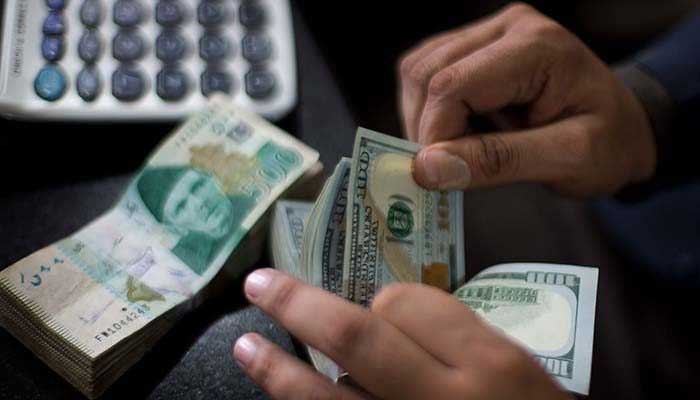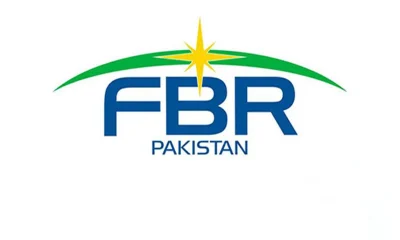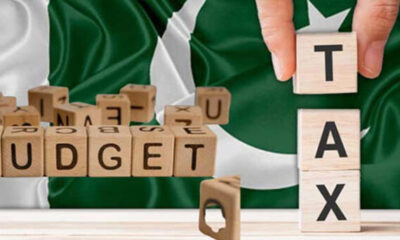ISLAMABAD: The government has decided to turn up the legislative heat on the hoarders of foreign currencies — especially dollars — through penalties like heavy fines and imprisonment to discourage negative market forces from manipulating the exchange rate to their advantage, sources said Friday.
The new laws will be applicable to the exchange companies and the individuals found guilty of illegally stashing foreign currency in the country.
With few hours left to the unveiling of the budget 2023-24, sources told Geo News that the government was mulling raising the limit of the foreign currency allowed to be brought in from abroad up to $100,000 in a year. No questions would be asked regarding the source of the funds if the amount is less or equal to the aforementioned figure.
Currently, an amount of foreign currency equivalent to Rs5 million can be brought into the country without raising any flags.
The sources said that a proposal to impose penalties on non-filers has also been submitted according to which a maximum of 25% fine will be slapped on violators.
Under Section 165 of the Tax Ordinance, an Rs2,000 fine will be imposed on all those who don’t file their withholding tax statement.
On the other hand, the tax defaulters will face an additional Rs200 per day fine.
The recent development is seen as a hurried regulatory response to the US dollar’s record-breaking surge, reaching an unprecedented level of over Rs300.
The government has spun into action to put brakes on the “undesirable” outflow of foreign currency from Pakistan and promote transparency in foreign currency transactions conducted by exchange companies.
Amidst negotiations to revive a $6.7 billion bailout programme with the International Monetary Fund (IMF), Pakistan is not expected to devalue its currency further, as the pressure on the rupee has subsided, Bloomberg quoted Fitch Ratings as saying.
“We currently do not expect a large further devaluation of the Pakistan rupee,” Krisjanis Krustins, a Hong Kong-based director at Fitch, said in an emailed response to questions Friday.
“Although the currency has been very stable over the past few months, pressure on the reserves of the State Bank of Pakistan has also been contained, which suggests minimal interventions to support the currency,” Krustins said.
The IMF has stated that it is collaborating with Pakistani authorities to address concerns related to the country’s currency market and other matters before resuming the ongoing bailout programme, which is scheduled to conclude this month.
Following a currency devaluation in January, the rupee has depreciated by over 20% this year, rendering it one of the weakest performers globally.
The nation’s dollar stockpile has remained stable at about $4 billion since late February, after falling more than 50% in the past 12 months. Funds will be crucial to prop up the economy beset by supply shortages and avert a sovereign default, with billions of dollars of debt payments approaching.
“We continue to assume that the IMF and Pakistan will conclude the ongoing programme review, likely after the IMF has clarity on the upcoming budget,” Krustins said. “However, the window for this is rapidly closing, with the programme originally set to expire in June, and substantive progress unlikely in the immediate run up to elections due by October.”

 Latest News2 days ago
Latest News2 days ago
 Business2 days ago
Business2 days ago
 Business14 hours ago
Business14 hours ago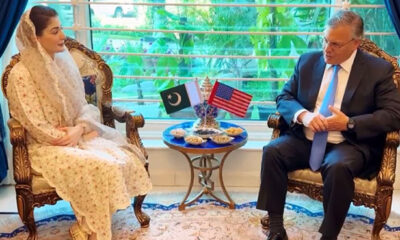
 Latest News2 days ago
Latest News2 days ago
 Business14 hours ago
Business14 hours ago
 Business2 days ago
Business2 days ago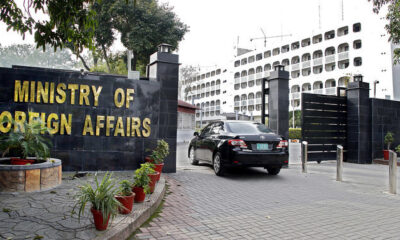
 Latest News2 days ago
Latest News2 days ago
 Business14 hours ago
Business14 hours ago
